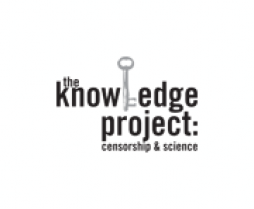President Obama’s inaugural address pledge to “restore science to its rightful place,” signaled in clear, unambiguous terms a shift in White House science policy. Since his inauguration, President Obama has taken two major steps towards fulfilling this pledge.
First, on March 9, 2009 he signed an Executive Order, which lifted President Bush’s ban on federal funding for embryonic stem cell research.
Second, on the same day, President Obama issued a memorandum in which he directed his top science advisor to develop standards, applicable to all federal agencies, to guide the selection of scientific experts and establish protections for whistle blowers. The memo was published with the express purpose of ensuring that “we make scientific decisions based on facts, not ideology.”
These first steps are indeed encouraging. They, however, are only the beginning. As noted, supra, the previous administration systematically applied political pressure to silence and alter the voices of scientists as well as to disrupt the public’s access to unbiased scientific information. The extent of the damage spans multiple federal agencies as well as many of our greatest research institutions, both private and public, which have relied on federal funding. Furthermore, beyond the damage to be repaired, there remain forces arrayed in opposition to the release of scientific information, including politicians and industry representatives. In short, an ally in the White House is not sufficient to insure science’s integrity. To fully realize the President’s pledge and restore science to its rightful place will take concerted effort from the house as well as the executive and consistent monitoring and pressure applied to both by private citizens and organizations.
Outstanding Issues:
HR 801:
HR 801, The Fair Copyright in Research Act is a bill sponsored by Minnesota Congressman, John Conyers. The bill, which is currently in committee, would have wide reaching effects on the public’s ability to access data from government funded scientific research. Currently, all research funded by the National Institute of Health must be made publically available—this amendment to the current copyright code would put an end to this policy, and seriously curtail public access to research that their tax dollars helped to fund.
New Stem Cell Guidelines:
Now that the dust has settled on President Obama’s lift of the ban on federal funding of embryonic stem cell (HESC) research, it appears his stance on the issue is not as open as many scientists had hoped it would be. In concert with White House, the National Institute of Health has released draft guidelines for HESC researchers seeking federal grants. While not as restrictive as President Bush’s near-total ban on funding, the new guidelines do still limit the scope of research that is eligible for federal funds. In fact, in a somewhat ironic twist, the few existing stem cell lines that the Bush Administration deemed acceptable may not past muster with new heightened donor consent standards in the NIH guidelines. Though there are certainly bioethical concerns related to HESC research, the new guidelines go further than needed to address them and will result in the furtherance of the Bush policy that President Obama campaigned against—government interference with the public’s constitutionally protected right to free inquiry and expression in this vital and promising new scientific field.
See also An Update to “Political Science: A Report on Science and Censorship”


